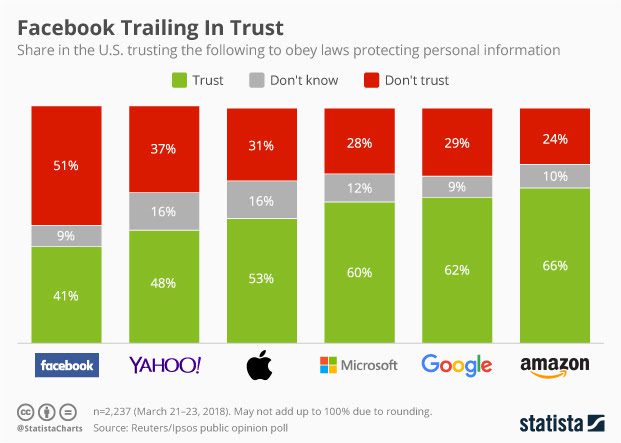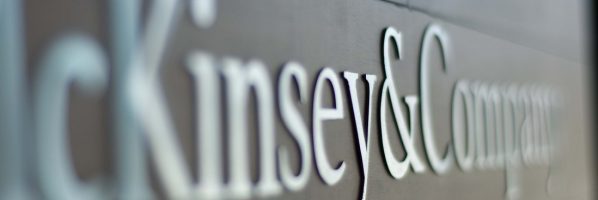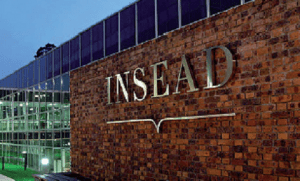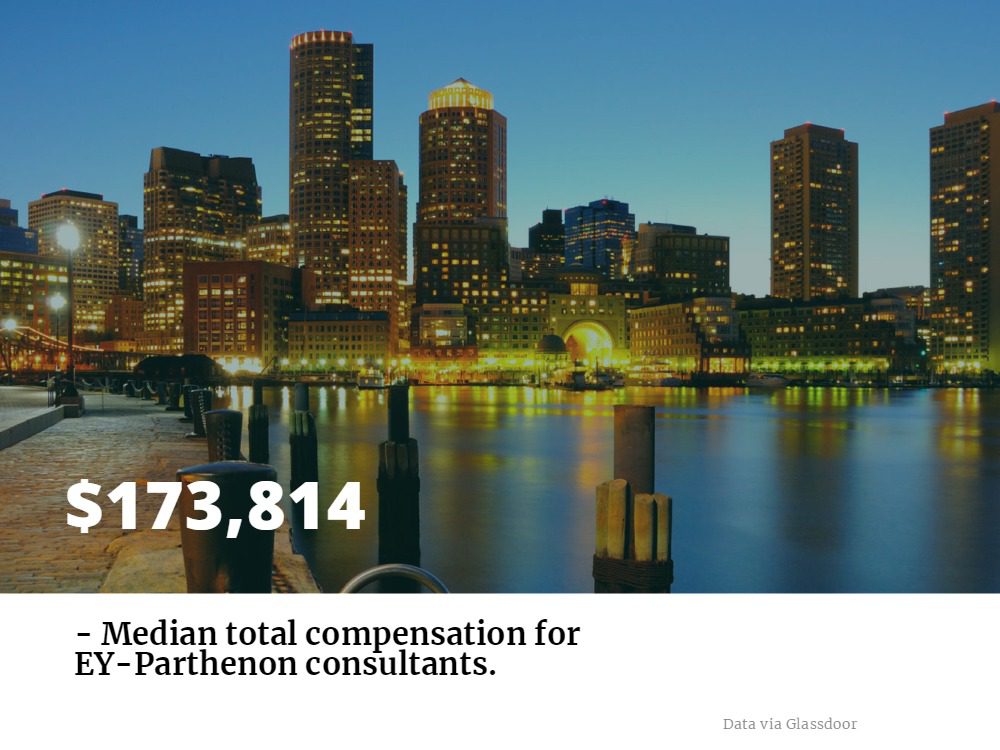What They’re Saying: The Facebook Fallout

It seems puzzling to say a company that is worth nearly half a trillion dollars is venturing somewhere near zero degrees Kelvin, but if you were only reading headlines this week you’d get the sense that Facebook isn’t looking so hot.
Since the break of the Cambridge Analytica scandal, the tech giant lost an estimated $100 billion USD in value, and its beleaguered founder Mark Zuckerberg lost an estimated $14 billion of his own worth. Fortunately for him, according to CNN, he’s still worth over $60 billion so he can easily afford more mayonnaise and butter sandwiches.
But the fallout is more than monetary. Trust in the social media company is at a critical low point, according to Statista data.

Janina Conboye at the Financial Times recently asked how the company may go about repairing its own image in “The MBA view: can Facebook fix its reputation?,” speaking with numerous business school faculty members, including London Business School‘s Jill Schlechtweg, who plainly says, “It is worth wondering whether Facebook can regain credibility at all. Arguably Mark Zuckerberg has evaded responsibility for the social costs of social media addiction, the proliferation of fake news, and now leaks of personal data for political ends.”
Check out how other business schools and industry experts are reacting the ongoing Facebook story below.
What @facebook knows about you apparently includes data about phone calls and messages. The revelation could make Facebook’s huge data scandal hurt more than ever. https://t.co/jActrbEB5i
— MIT Tech Review (@techreview) March 27, 2018
PSA: “Harvard Business School Prof. Shoshana Zuboff calls it “surveillance capitalism.” And as creepy as Facebook is turning out to be, the entire industry is far creepier. It has existed in secret far too long…” https://t.co/vSPlAyWnzu
— Mitchell Schneider (@Mitski) March 27, 2018
What Cambridge Analytica is accused of doing, Facebook and Silicon Valley giants like Google do every day, indeed, every minute we’re logged on. – https://t.co/8O9730vddo
— Mark Schaefer (@markwschaefer) March 29, 2018
In the wake of the Cambridge Analytica scandal, Apple is making their position clear on privacy. https://t.co/OLIl5ihtby
— FOX MBA & MS (@FoxMBA) March 28, 2018
.@profgalloway weighs in on #Facebook‘s handling of the Cambridge Analytica scandal via @barronsonline https://t.co/6zWqfAa3nk
— NYU Stern (@NYUStern) March 28, 2018
The Best Business Schools for Landing Top Consulting Jobs

Clear Admit recently explored which business schools help prepare MBAs the most for a career in consulting, which you can read below.
With starting salaries in the $140,000 to $150,000 range and a customary $25,000 signing bonus on top of that, it’s no wonder so many business school students target the prestige consulting firms known as the “MBB”—McKinsey & Company, Boston Consulting Group (BCG), and Bain & Company—as their post-MBA landing pads. That $170,000+ annual compensation package can quickly cut any MBA loan debt you may have taken on down to size.
Indeed, management consulting has been one of the most coveted career paths for fresh MBA grads for ages. And though the technology industry has in recent years been stealing some grads from the consulting industry’s traditional slice of the pie, the most recent MBA employment reports reveal that consulting is already making a comeback against tech at certain schools.
The opportunity to work with a range of clients comprised of many of the world’s most celebrated businesses across industries—tech included—is part of the appeal of consulting. In many ways, a top consulting gig allows MBA grads to continue their management education while getting paid for it—and further honing their skills and expertise by helping solve a wide variety of business challenges. And, not for nothing, breaking into the MBB is a highly competitive pursuit—one that almost assures that your colleagues will be smart, driven people you’ll get a lot out of working with.
Finally, where the top consulting firms are choosing to find their talent reflects on the quality of the education those schools’ students are getting. In many ways, the hiring practices of the MBB can serve as a gold star standard of sorts for MBA programs.
Elite Firms Hire Grads from Elite Business Schools
The crème de la crème of leading business school talent has headed toward the top consulting firms for decades—and performed well there—creating a virtuous circle of sorts in which the firms’ appetite for such talent only grows. And while this piece focuses on MBB, we should note that a host of other consulting firms—Deloitte, A.T. Kearney, Accenture, Strategy&, and Oliver Wyman among others—are also highly prized post-MBA destinations.
If you are looking to see which business schools send the greatest percentage of their graduates into consulting overall, don’t miss our September 2017 analysis of leading consulting industry feeder schools. Which schools top the list? And what stands out about how these schools successfully train students for careers in consulting?
Looking at Class of 2016 graduates, the University of Virginia’s Darden School led the pack, with 38 percent of its graduates heading into consulting. Columbia Business School was next, sending 35 percent, followed closely by Northwestern University’s Kellogg School of Management, which sent 33 percent.
The 2017 employment reports, which have been released since our analysis last fall, show some shifts year over year. Darden tied with Emory’s Goizueta School of Business in terms of the percentage of Class of 2017 grads who headed into consulting, with each school sending 34 percent. Close on their heels were Columbia, Duke’s Fuqua School of Business, Northwestern’s Kellogg School of Management, and Dartmouth’s Tuck School. All four sent 33 percent of their most recent graduating class off to consulting firms.
2 Non-U.S. Schools Lead All Others in Consulting-Bound ’17 MBA Grads
But year after year, one thing remains the same. INSEAD, with campuses in France, Singapore, and Abu Dhabi, beats all leading U.S. business schools when it comes to consulting. INSEAD’s 2016 MBA employment report, detailing employment outcomes for December 2015 and July 2016 INSEAD grads, shows that 46 percent went into consulting. And the most recent figures reveal that almost a full half—49 percent—of the 1,029 students who completed the INSEAD MBA program in December 2016 and July 2017 chose to either enter or return to the consulting field.

We should note here that INSEAD is distinct from many other schools in that it includes sponsored students who are returning to their pre-MBA employers among its hiring stats. This is in contrast to many U.S. schools, where the reported number and percentage of students hired by sector and employer corresponds to those students actively seeking employment, excluding sponsored students. Of the 49 percent of INSEAD 2017 grads headed into consulting, 33 percent were new hires and the remaining 16 percent were returnees.
London Business School (LBS) was the runner-up for the Class of 2017, sending 41 percent of grads into consulting. This was a 6 percentage-point gain over the school’s previous class of MBA graduates. Like INSEAD, LBS’s reported sector designation and top employer information includes sponsored students, only its employment report does not disclose what percentage of the class those returning students represent.
Stanford Reigns Supreme on New Financial Times Global Ranking

INSEAD hoped to top the Financial Times MBA rankings for the third year in a row, but it wasn’t to be. The Stanford Graduate School of Business (GSB) gets top bragging rights this year, returning to the number-one spot it has held only once before, in 2012. INSEAD was knocked to number two, followed by the University of Pennsylvania’s Wharton School, which held steady at number three. London Business School (LBS) reclaimed some ground this year—coming in fourth—after a rare fall last year out of the top five. Harvard Business School (HBS), meanwhile, ranked fifth, its lowest showing since 2008.
Rounding out the top 10 this year were the University of Chicago Booth School of Business at sixth (up from ninth last year); Columbia Business School at seventh (unchanged from 2017); China’s CEIBS at eighth (up from 11th); MIT Sloan School of Management at ninth (up from 13th); and UC Berkeley’s Haas School of Business at 10th, (also up from 13th).
Perhaps the greatest victors of this year’s FT rankings were two-year MBA programs, which occupied nine out of the top 10 spots. More two-year programs moved up or maintained their position this year than moved down (31 compared to 21). In contrast, more one-year programs lost ground than gained this year (14 up, 21 down).
“It’s great to see the continued strength of the two-year MBA format in this year’s FT rankings, a format that allows for a truly transformational and immersive experience,” said Clear Admit Co-Founder Graham Richmond. “LBS’s move back into the top five isn’t surprising in light of the program’s continued strength in job placements, new facilities, curriculum redesign, and location at the heart of business and innovation in Europe (even as Brexit looms),” he continued. “While HBS’s position is inconsistent with Clear Admit’s Decision Wire-based data on applicant preferences, it’s the increasing gap in the FT ranking between Stanford and HBS that seems noteworthy.”
As always, the bearing a given ranking should have on your own choice of schools depends on how closely the methodology used to arrive at that ranking aligns with what you deem most important. So just how does the FT compile its list each year?
Understanding the FT Ranking Methodology
The FT ranking is based on surveys of alumni three years out from graduation, school data, and research rank. Alumni responses inform eight criteria—including average income three years after graduation and salary increase compared with pre-MBA salary. Together, these eight criteria account for 59 percent of the overall ranking. School data inform another 11 criteria—including various measures of diversity such as percentages of female and international faculty, students, and board members. Together these criteria make up another 31 percent of the ranking. The remaining 10 percent of the ranking is based on research rank, calculated according to the number of articles by full-time faculty in 50 internationally recognized journals, weighted relative to faculty size.
Record-Breaking Salaries Put Stanford GSB on Top
Stanford, which ranked second last year, managed to unseat INSEAD this year thanks in part to the record-breaking salaries reported by its alumni. The average Stanford alumnus salary three years after graduation was $214,742, up $20,000 over last year’s figures and the highest recorded since the inaugural FT ranking in 1999. Stanford grads’ average salary also represented a 114-percent gain on their pre-MBA salaries, also the highest increase among ranked schools. That a significant proportion of Stanford grads head into highly lucrative hedge fund positions helped it outdistance its rivals in this regard.
Stanford also far outdistanced its U.S. rivals in terms of the international exposure it affords its students. More than 25 percent of the latest graduating cohort did an internship abroad—compared to an average of 4 percent at ranked U.S. schools. Overall, though, Stanford ranked 32nd for international course exposure, down 14 places from last year. But in other measures of diversity, Stanford made gains, including its international faculty (41 percent), international board (25 percent), and international students (41 percent). In this last figure, too, Stanford set itself apart from its U.S. rivals, the majority of which have recruited fewer international students. Although the average proportion for ranked institutions is down by only one percentage point to 38 percent, the FT noted.
Research Scores Hold HBS, LBS Back
Both HBS and LBS saw their average salaries three years out increase by approximately $14,000—to $192,133 and $167,897 respectively. That climb helped LBS return to the top five this year, but sharp drops in each schools’ research ranks worked against them. Harvard’s research rank plummeted from third to 16th—contributing to its fall to fifth in the overall ranking. “This year’s research rank is based on articles published in 50 academic and practitioner journals by full-time faculty since January 2015, but several Harvard faculty last appeared in these publications in 2014, too long ago to count,” the FT noted. LBS, for its part, dropped from 12th to 27th in research rank.
Rice Business, Olin, Georgetown McDonough, Cornell Johnson See Big Gains
Just as two-year MBA programs fared well with regard to their one-year rivals this year, a select group of individual schools saw big gains this year over last. Rice University’s Jones School of Business jumped 19 places this year, from 64th to 45th. This surge can be attributed primarily to strong salary growth. Average salary grew from $130,189 to $139,189, contributing to a 118-percent increase over pre-MBA salary (up from 97 percent last year).
Washington University’s Olin Business School rose 18 spots, from 68th to 50th. The St. Louis school saw significant gains in average salary ($122,709) and increase over pre-MBA salary (107 percent). Georgetown University’s McDonough School of Business jumped 10 spots, from 40th to 30th, thanks also in part to increased average salary, as well as improved research rank (up 10 spots to 17th) and various diversity measures. And Cornell University’s Johnson Graduate School of Management also moved 10 spots up in the ranks, from 27th to 17th, due in great part to a significant increase in its research rank, up 13 places to fourth overall.
Spain’s Schools Slip Out of Top 10
In less celebratory news, two of Spain’s top-tier business schools slid out of the FT’s upper-most ranks. IESE slipped from 10th to 11th. Though its graduates’ average salary increased year over year, the increase was slight. Moreover, it slipped seven spots in terms of percentage increase over pre-MBA salary. Research rank, too, fell by five spots over the previous year.
IE Business School, meanwhile, fell out of the ranking altogether—from eighth last year. This is because it couldn’t gather a representative sample of the school’s alumni to take part in the FT’s survey.
As always, those of us here at Clear Admit encourage prospective applicants to use a school’s performance in these and other rankings as just one of many measurements to determine the MBA program that will best fit your individual needs.
You can view the complete Financial Times 2018 Global MBA Rankings here.
This article has been edited and republished with admissions from our sister site, Clear Admit.
London Business School Prof Warns of the Future for Tech Giants

Last year, tech giants such as Google, Amazon, and Facebook already started facing new regulations and pushback from government officials. For example, last November, the State of Missouri launched an investigation into Google to see if it had violated antitrust and consumer protection laws. Julian Birkinshaw, a professor of strategy and entrepreneurship at London Business School, thinks that’s only the beginning.
“The tech giants are huge beasts, and there is a growing sense of unease about their power,” Birkinshaw said in a news article on the school website. He went on to talk about various fines already levied against big tech firms such as Google, which was ordered to pay €2.4 billion last June for abusing its internet search monopoly to promote its online shopping service. Facebook, meanwhile, got slapped with a €110-million fine by the European Union for providing misleading information about its takeover of WhatsApp.
According to Birkinshaw, these examples are just the tip of the iceberg. “Over the coming year we can expect to see more of this aggressively activist approach in tackling companies with dominant positions,” he wrote.
What’s driving this more aggressive regulation? Birkinshaw believes it has to do with the old supplier-manufacturer-distributor-consumer model, which doesn’t fit these new tech giants. Antitrust legislation wasn’t designed to cope with tech companies whose profitability increases rapidly alongside its growth.
For example, Facebook has more than two billion active users, Google handles 42 percent of all U.S. digital advertising, and Amazon has all but eliminated would-be competitors. Birkinshaw sees no signs of these companies slowing down.
“The more people who join Facebook or use Google, the more data the company can mine. The economies of scale become ever greater,” Birkinshaw wrote. “So we need to rethink the way we monitor the power of the huge companies now dominating the business landscape.”
This article has been edited and republished with permissions from our sister site, Clear Admit.
The Not-So-Secret Way To Land a Job at EY-Parthenon

After the hard work and sweat of earning an MBA degree, you’ve probably thrown yourself into searching for the perfect job to match your new found expertise. Luckily, some of the world’s top companies are also looking for you.
Companies like EY-Parthenon are always looking to recruit top MBA talent seeking careers in strategy consulting. A division of Boston-based EY (formerly Ernst & Young), one of the world’s top professional services firms, EY-Parthenon is a strategy consultancy which aims to combine innovative thinking with clients’ smarts to create actionable strategies that can cause a real impact in today’s business world.
MBAs Love EY-Parthenon
For MBA graduates looking for a career in strategy consulting, there are few places that can provide the unique combination of diverse clients and rewarding entrepreneurial work that EY-Parthenon offers. Comments from Parthenon’s MBA-holding consultants on why they love their job range from the incredible relationships they get to build with clients to the competitive benefits package they receive (including a night at the EY suite at Yankee Stadium).
“There is certainly an attitude in the New York office that we work hard but ensure that we find that balance necessary to enjoy the great benefits of working with wonderful colleagues in the best city in the world,” commented a graduate of NYU’s Stern School of Business and current Senior Consultant at EY-Parthenon.
For Adam, a graduate of the University of Chicago Booth School of Business and current Vice President at the Shanghai office of EY-Parthenon, working at the company has given him the opportunity to use his industry specific expertise to benefit a diverse set of clients.
“[A]t any given time, I may be leading a two-week diligence for a private equity client while also working on an eight-week corporate strategy engagement,” he says. “Having such a variety of engagements while still being able to be focused on very strategic work within a single sector practice is what I think sets EY-Parthenon apart.”
Life at EY Parthenon
As a consultant at EY-Parthenon, MBAs will play a critical leadership role in the company. Serving as the primary contact for clients, MBA graduates will have the chance to get their hands dirty right away, developing and executing work plans for a diverse client set. Consultants will use their knowledge of teamwork, leadership, analytics and communications to excel in the role.
The consultant career track at EY-Parthenon consists of various phases, beginning with work stream leadership—a focus on gaining the crucial analytical skills needed to best help clients—and ending with client management, the final stage before moving into a role as a partner or managing director. EY-Parthenon accelerates individuals through their careers and have no official timetable for new consultants outside of their own ambition and ability to take on responsibilities.
According to anonymous profiles on Glassdoor, consultants at EY-Parthenon make an average of $173,814 annually.

Landing The Job
Anyone can apply for a consultant role at EY-Parthenon, but the company also actively recruits at a number of undergraduate and graduate business schools. The MBA programs the company recruits from are spread throughout the world, and include some of the United States’ top programs, such as Harvard Business School, Kellogg School of Management, and the Stanford Graduate School of Business. The company also heavily recruits at international schools like INSEAD and the London Business School.
MBA students in their second year may apply directly for a full-time consultant role with the company, and first year students are eligible to apply for the summer consultant position. Any student attending a school that EY-Parthenon directly recruits from should check for the specific instructions on how to apply to these roles, typically through their university’s career services. The interview process for these schools typically takes place over two rounds, with the first round taking place on campus and second round interviews at the one of the various global Parthenon offices.
For more information on the company and job opportunities for current MBA students and graduates, check out the official EY-Parthenon MBA job page.
From Just One Woman to 39 Percent of the Class—and Other Ways LBS Has Changed Over the Past 50 Years

The 2017-18 academic year marks the 50th anniversary of the MBA program at London Business School (LBS). Since 1968, the school has offered a two-year Master of Science (MSc) in Business Studies degree program—the original MBA—and has continuously refined its offerings since that time. In celebration of the 50-year mark, LBS is looking back at how far the program has come.
The Beginning
In 1966, two years after London Business School opened its doors, the school launched a two-year Master of Science (MSc) in Business Studies. The first class consisted of 35 men and just one woman, with the average age around 25 years old. The goal of the two-year degree was to prepare students for employment. In fact, according to the website, employment was seen as “one of the most significant aspects of the school’s progress at this stage of its development.”
After graduation, most students joined manufacturing firms, and a few went into merchant banking, management consultancy, and advertising. Their job functions included marketing and financial executives, planning personnel, and personal assistant roles.
As for the feedback on the first year of study, a report on the class stated, “The overall academic performance of the students during the year has been more than satisfactory. The course of studies is arduous and the number of hours of work required is much above average, imposing a considerable workload both on students and staff.”
The Early Years
In the early years of the program, growth was slow but steady. In 1971, the class size grew to 86 students and by 1975, 108 students were admitted, including 16 women. Throughout this time, LBS made various modifications to its program.
- In 1973, LBS introduced the International Management Program, which gave 10 students the change to study abroad in Paris or at New York University.
- In 1978, the International Management Program expanded to include Harvard, Stanford, Wharton, Chicago, and top European institutions.
The 1980s
The 1980s were a time of change for LBS and the MBA program. During these years, banking and finance overtook manufacturing as the top industry for graduates. In addition, LBS continued to increase its international reputation; about half of its class comprised non-British students by the end of the decade, with more 30 nationalities represented. Most importantly, the Class of 1987 was the first to be awarded an MBA rather than an MSc degree. In an annual report, the school stated, “This more accurately and effectively conveys the spirit of the program, and the type of qualifications our students are aiming for.”
- In 1982, LBS introduced a new part-time master’s program. The first class accepted 60 people and allowed students to complete their studies over two and a half to three years while still working.
- In 1984, three more U.S. schools joined the International Exchange Program including Dartmouth Tuck, MIT Sloan, and Northwestern Kellogg.
The 1990s
In the 1990s, LBS adopted a more flexible format for its MBA program. The school added increased training in “soft skills” and introduced computer-based management simulation games. The class size also increased to 271 students, with 79 percent of students coming from outside the United Kingdom. Consulting became the top choice for graduates, and manufacturing shrunk to just 11 percent.
- In 1992, LBS introduced a language requirement where students must be fluent in English and one other language to graduate. In addition, the part-time master’s was re-launched as the Executive MBA.
- By 1996, entrepreneurship became an important part of the program, and the school launched several electives with an entrepreneurial focus, including “Small Business Management” and “Financing the Entrepreneurial Business.”
- 1999 was the first Financial Times Global MBA ranking, and LBS ranked #1 in Europe and #8 in the world—the only non-U.S. school in the top 10.
The 2000s
By the 2000s, LBS had become a global leader in MBA education—and in 2009 it became the first non-U.S. school to top the Financial Times ranking. The MBA program was reformatted for increased flexibility, allowing students to graduate in 15 to 21 months. The class size also increased to 315 students, with 89 percent of the class from 59 countries outside the United Kingdom.
- In 2001, LBS ranked as the best Global MBA by the Financial Times, and Forbes ranked LBS as #1 in Europe and #2 in the world for return on investment.
- In 2003, LBS became the first European school to join the Forté Foundation to increase women in business, and in 2005, women made up 22 percent of the class.
The 2010s
In the last decade, London Business School once again revised its MBA program to give students even greater flexibility. The school also continued to increase its size, welcoming 468 students by 2018—12 times the size of the first class in 1968. In addition, women now make up 39 percent of the MBA class, and students represent 77 different nationalities.
- In 2010, LBS started its Incubator Program to help entrepreneurs. As of 2017, 58 businesses have completed the incubator, raising more than £31 million and creating 440 full-time jobs.
- In 2012, LBS launched the Global Business Exchange (GBE), giving students the opportunity to spend a week in another country with options ranging from South Africa to the United States.
- In 2016, LBS completed its first fundraising campaign, raising £125 million.
To learn more about the 50th anniversary celebration of London Business School’s MBA, visit the school website.
